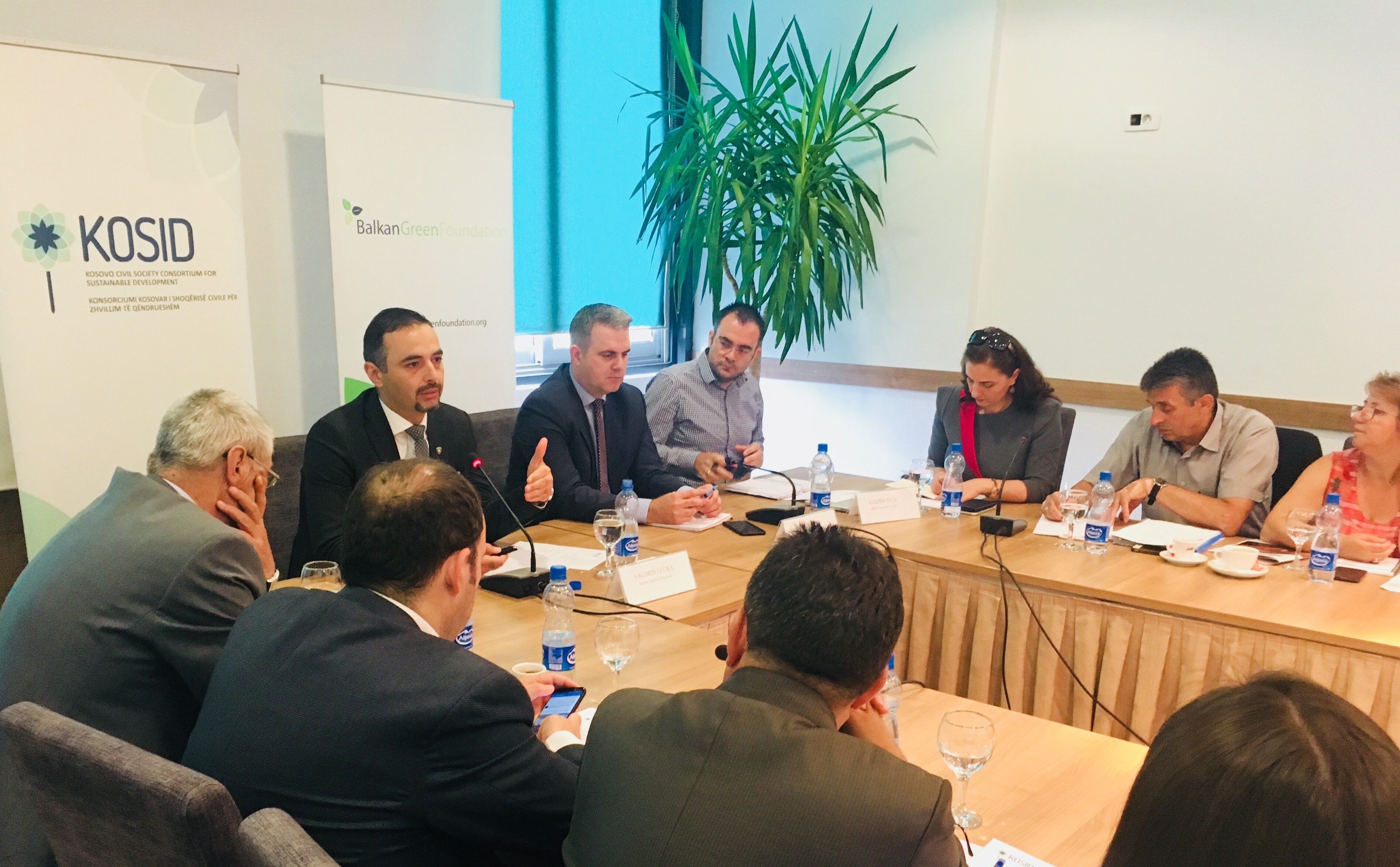Lluka: The Energy Strategy addresses the challenges of the sector in the long run
Prishtina, 10.05.2018 – Despite the challenges facing the energy sector, we should not remain indifferent, but rather we need to work on a longer-term plan for the development of the energy sector in the country, said the Minister of Economic Development Valdrin Lluka. He made these remarks today at the round-table “The Future of the Energy Sector in Kosovo”, which was held in Prishtina under the consortium of civil society organizations KOSID.
Focusing on the current situation in this sector, Minister Lluka said that in Kosovo for 40 years there have been no new investments in electricity generation and old assets such as TPP “Kosova A” are completely amortized, and have a large impact on environmental pollution.
“In addition, the electricity supply is not stable, and from time to time we have outages of units that affect businesses in the country, and are a high inconvenience for the citizens of Kosovo,” he said, adding that the energy efficiency measures were limited, while there was a stagnation in investments in renewable energy.
The head of MED noted that technical and commercial losses continue to be extremely high, especially from illegal connections and energy theft, although there has been an improvement over the last five years.
Minister Lluka said that the Energy Strategy 2017-2026 addressed all the aforementioned issues in the long run. “Our long-term plan is also provided in the Energy Strategy, adopted by the Parliament, for the next 10 years. We are at a time when we have to shutdown TPP “Kosova A” with a capacity of 600 MW, and it should be replaced with new capacities, as foreseen with TPP “Kosova e Re”, with a capacity of 450 MW, with 10% cogeneration capacity. Then, it is necessary to invest in the rehabilitation of TPP “Kosova B” in order to maintain its capacity of 600 MW in order to extend its lifespan for at least the next 20 years, so that we can secure that baseline energy in the country”, he said.
Then Minister Lluka spoke about alternative energy sources, adding that Kosovo has issued around 450 MW of renewable energy licenses, but currently there are only around 35 MW in function. However, by the end of the year we expect to have around 100 MW in operation, of which about 50 MW in wind, 35 MW hydro and 10 MW solar.
“We have an applicant through the Law on Strategic Investment for the Solar Park in Kosovo, which foresees construction near the ash landfill site with a capacity of 150 MW, which will be among the largest parks in Europe in terms of solar, and when all licenses are realized they will bring 600 MW of renewable energy generation,” said the Economic Development Minister.
A challenge in itself, as highlighted by Lluka, is the control of energy borders, including the relationship with Serbia, an issue which is being worked extensively with the support of the German Government, namely the issue of interconnection. “The failure to implement this agreement is also an obstacle in the integration with Albania, and the regional integration as a whole in terms of energy optimization” he added.
According to Lluka, looking ahead, in 2040 with the closure of TPP “Kosovo B” the aim is to have about 60% of the energy demand generated from renewable energy and gradually, with the life expectancy of TPP “Kosova e Re”, foreseen to be 30-40 years, to become an economy where the majority of energy will be renewable energy and efficiency measures an integral part of it.

